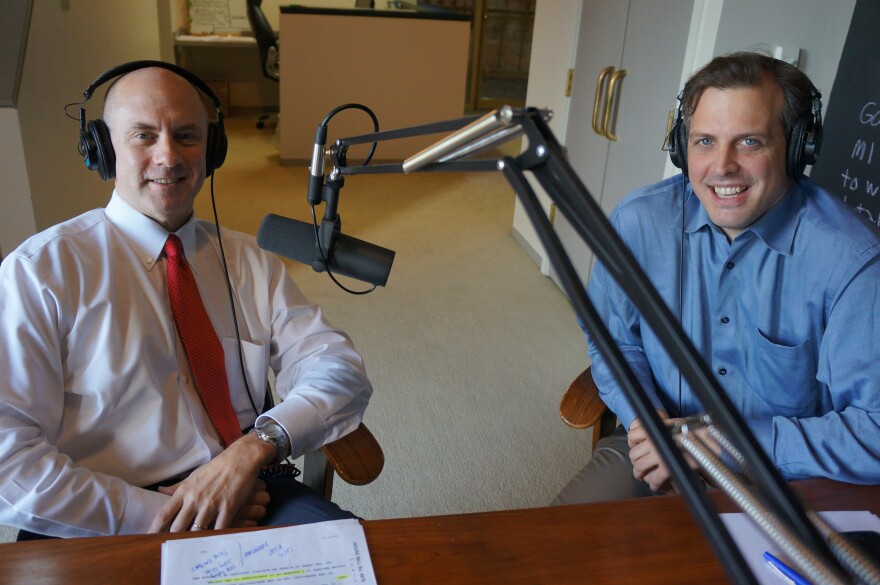A bipartisan package of bills is being considered by the Michigan Legislature that would subsidize homes, businesses, and churches that generate their own electricity using solar power or other methods of home-grown generation.
The big power-generating companies aren’t happy. They say other ratepayers would end up paying for part of the cost of that renewable energy production.
Representatives Gary Glenn, R-Midland, and Jeff Irwin, D-Ann Arbor, are two of the co-sponsors of the package along with Scott Dianda, D-Calumet, and Ed McBroom, R-Vulcan.
"My bill would allow any group of people ... [to] get together and have collective ownership of a solar array or a windmill farm and be able to sell shares," Glenn says, explaining that it's the same thing utility companies do now, just at a different point in the power network.
"It's all about energy independence and competition and diversity of our energy supply," he says. "We shouldn't put all our eggs in one basket."
Irwin tells us the goal of this package is to develop a fair, market-based system by which home or business owners generating power at "the tips of the network" will be paid an amount for that energy that takes into account not only the wholesale price of energy, but also the benefits of generating at the tips.
"Capacity benefits, environmental compliance benefits, you don't have all that line loss," Irwin says. "So what we're saying is that if a customer generates electricity at their home, and they're generating more ... than what they need, and DTE or Consumers [Energy] or municipal authorities are going to sell that excess power to your neighbor, that they should pay the person who is generating that power a fair, market-based price."
Utility companies in Michigan are guaranteed 90% of the market share by law, but they argue they will need an even greater chunk of the marketplace in order to effectively plan for the future. They say federal regulations are already making that difficult, and this package of bills would only serve to further complicate the process.
But Glenn looks south to Ohio, where there is no guaranteed market share and companies are forced to compete for market share, yet six new power plants are expected to be up and running by 2019. Glenn tells us that Michigan hasn't built a new plant in decades.
"I think they ought to be able to do business in an open marketplace like every other business does," he says. "What business wouldn't want the law to guarantee them 90% of their particular business?"
Irwin tells us there's an "epic battle" in Lansing right now over the state's next energy policy. He says it all comes down to the Legislature deciding what's in the public interest.
"What we're saying is that giving residents ... and giving business owners the freedom to generate energy at the tips of the network, encouraging home-based generation, encouraging innovation and investment in our state, those are all things that are in the public interest," Irwin says.
– Ryan Grimes, Stateside


